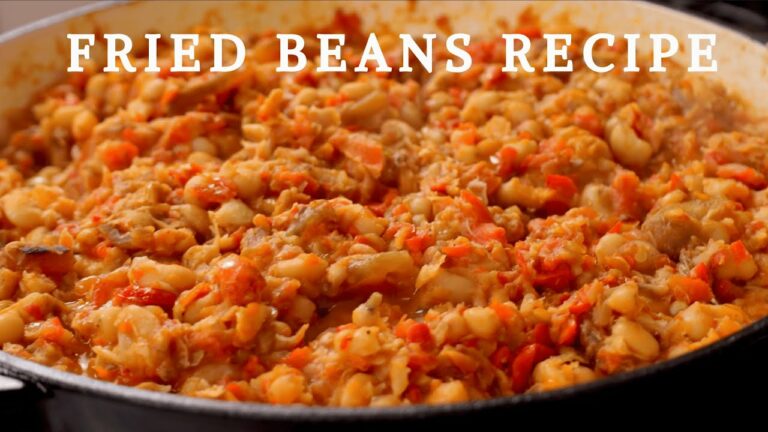
There’s something special about Nigerian cuisine that brings people together. At the heart of it, you’ll find iconic dishes like Ewedu soup and Amala, a dynamic duo loved by millions across Nigeria, especially among the Yoruba people. Together, Ewedu soup and Amala create a unique taste that is simply irresistible.
The Unique Flavor Profile of Ewedu Soup
Ewedu soup, made from finely blended jute leaves, offers a distinctive flavor that’s both refreshing and subtly earthy. It’s traditionally cooked with a combination of local ingredients that add depth to its flavor, potash for thickening, locust beans (iru) for an umami punch, and a little seasoning to taste. The jute leaves themselves contribute a slimy texture, which might sound unusual but is incredibly satisfying once you’ve tried it. That’s the magic of Ewedu; it doesn’t overpower but rather enhances and harmonizes with other foods, especially with a starchy companion like Amala.
Interestingly, the jute leaves used in Ewedu are known for their health benefits, too. Rich in vitamins A, C, and E, as well as iron and fiber, Ewedu soup isn’t just about taste, it’s packed with nutrients that help with digestion, boost immunity, and even promote healthy skin.
The Earthy Goodness of Amala
Amala is a Yoruba staple made from yam flour, and sometimes plantain or cassava flour, which is then mixed with hot water to create a smooth, stretchy dough. What makes Amala unique is its dark color, ranging from brown to black, depending on the flour used. This color isn’t just for show, it actually enhances the overall earthy flavor that works so well with Ewedu soup.
When Amala is freshly prepared, it has a soft, almost fluffy texture that makes it easy to mold and scoop up soups. It’s not overly flavorful on its own, but that neutrality is exactly what makes it such a perfect match for Ewedu. As a “swallow” food (one that’s meant to be swallowed without chewing), it picks up the flavors of Ewedu, adding just the right amount of body and texture to every bite. This pairing is the culinary equivalent of a perfect rhythm; they each bring something different that, together, makes the experience whole.
Why Ewedu Soup and Amala Are a Match Made in Heaven
- Texture Contrast: The sliminess of Ewedu pairs with the dense, slightly gritty feel of Amala, creating a balanced mouthfeel that’s surprisingly comforting.
- Flavor Balance: Amala’s mild, earthy tones allow the bold, slightly bitter Ewedu to stand out without being overwhelming.
- Ease of Eating: Both Ewedu and Amala are soft and easy to swallow, making each mouthful a smooth and enjoyable experience.
- Nutrition Benefits: Together, they provide a nutritious meal rich in fiber, vitamins, and minerals that satisfy hunger and support health.
The combination of textures and flavors is more than just satisfying; it’s almost therapeutic. Each bite feels like an affirmation of tradition, a tie to home, and a moment to savor the simplicity of Nigerian food culture.
Regional Variations and Serving Styles
How people serve Ewedu soup and Amala can vary depending on where you are in Nigeria. In some homes, Ewedu is served with a side of spicy stew (often made with tomatoes, peppers, and palm oil) to add a little kick. Others may serve it with a scoop of Gbegiri, a bean-based soup that thickens the meal and introduces an extra layer of flavor. Adding a piece of goat meat, beef, or a boiled egg is also a popular option, making the dish heartier and even more satisfying.
Street vendors in Lagos and other bustling cities know exactly how to serve this combo to perfection. A bowl of Amala topped with Ewedu, a spoonful of stew, and maybe a chunk of meat or ponmo (cow skin) is a go-to lunch for many. This layered serving style reflects the versatility of Ewedu and Amala, showing how adaptable they are to different tastes and preferences.
Nutrition and Health Benefits
The health benefits of Ewedu and Amala go beyond taste and tradition. Ewedu is a powerhouse of nutrients, high in fiber and antioxidants, it supports digestion, lowers cholesterol, and may even reduce inflammation. Amala, made from yam, is rich in complex carbohydrates, providing a steady source of energy without spiking blood sugar levels. Together, they make a balanced, satisfying meal that’s not only filling but nourishing.
For those watching their diet, Ewedu and Amala can also fit into various eating plans. Ewedu is low in calories and high in water content, making it a great option for weight management. Amala, while dense in carbs, is often considered a better choice than other starches because of its gradual energy release.
A Timeless Tradition, Reinvented
Today, many chefs and food enthusiasts are putting their own spins on Ewedu and Amala, introducing new ingredients and styles to the traditional meal. Some are adding seafood like shrimp or crabs for an extra layer of flavor, while others are experimenting with Ewedu-based smoothies or dips. Amala is even being shaped into creative, bite-sized portions for easier eating. While these updates might be surprising, they reflect a genuine love for Nigerian cuisine and the creativity it inspires.
Discover more from Amebo Media
Subscribe now to keep reading and get access to the full archive.




